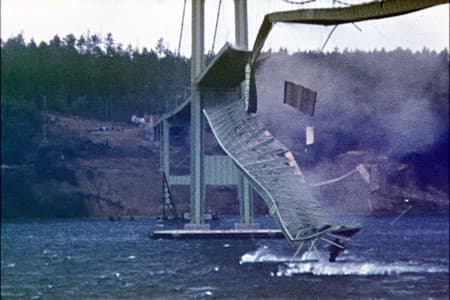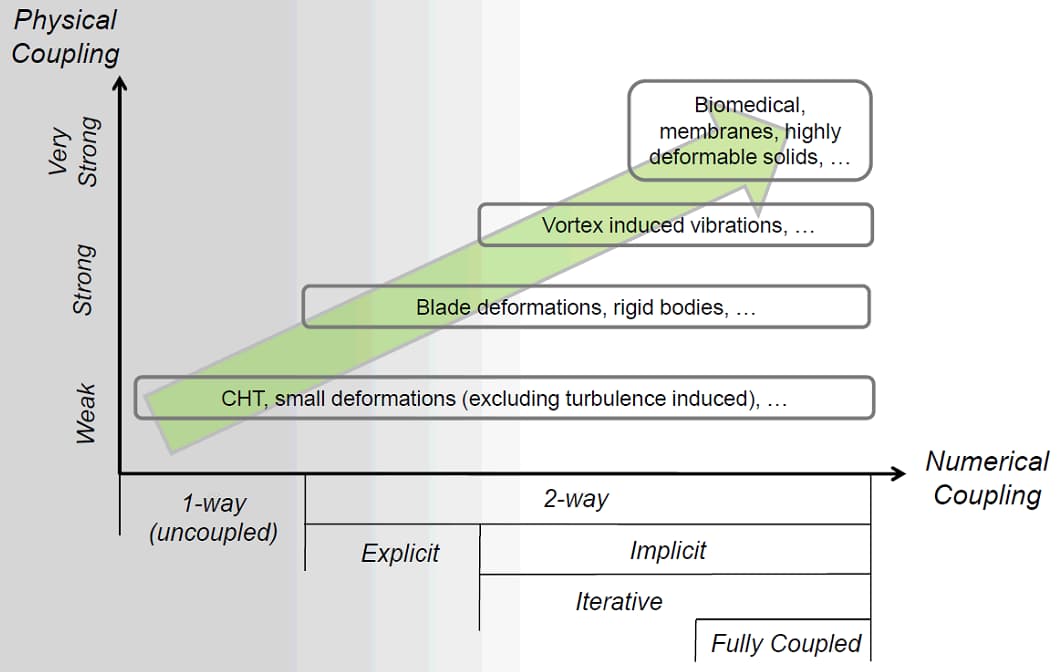Simulation Solution to Aeroelastic Stability problem of Suspension bridge
From the accident Tacoma Narrows Bridge (USA) which collapsed in 1940 when subjected to strong wind of approximately 68 km/h (LIMAS, Lisandra Fraga - 2007).

Figure 1. Tacoma Narrows Bridge (USA) collapsed due to flutter
The aerodynamic forces were identified as the cause of this serious destruction. With a strong wind level and a specific deck shape, inadvertently creating "unfortunate" motion induction of the structure with airflow.
The structure of the Tacoma Bridge has a natural frequency that coincides with the vortex shedding frequency of the airflow (a type of flow oscillation), making the bridge structure vibrate violently and collapse.
Figure 2. Oscillation of Tacoma Bridge before collapse
Therefore, one of the main concerns in long-span suspension bridge projects is the impact of the wind. Long and light bridge structures should be especially considered to the effect of wind, especially on their low natural oscillation frequencies (f <1.0 Hz). Then the bridge structure is easy to “be induced" with airflow movement (flow-induced motion).
Previously, wind tunnel experiments were the traditional method to determine the effect of wind on structures. However, in recent years, engineering simulation has been widely applied, thanks to many advantages in cost, accuracy and implementation time.
Fifure 3. The simulation of aeroelasticity on a long span suspension bridge
In essence, the phenomenon of aero-elasticity is the interaction of wind with suspension structure, or more broadly, the Fluid-Structure Interaction - FSI. This is a complex of multiphysics problem that requires powerful numerical methods and the ability to coupling solver.
With our knowledge of multiphysics calculation and the experience of exploiting engineering simulation tools, we have built a solution to simulate the phenomenon of the Aeroelasticity suspension bridge as a typical problem for this field.

Figure 4. The relationship between physics and numerical simulation methods in FSI interaction
Other multiphysics interactive problems can be applied to simulate FSI solutions such as:
- Construction: resonance forecast, aeroelasticity of long-span suspension bridge and cable-stayed bridge
- Energy:
+ Oil & Gas: Fluctuating flow in pipes, water hammer
+ Power plant: the bars and beams fluctuation
- Aerospace: The flutter of wing, compressor blades, turbine blades
- Automotive: Reed valve, turbocharger
- Healthcare: Vibrating membrane, diaphragm pump
...
For more details on suspension aerodynamic solutions or fluid-structural interaction solutions, please contact info@advantech.vn
Please specify "Source Advantech, Jsc." or "According to www.advantech.vn" if you want to disseminate this information


